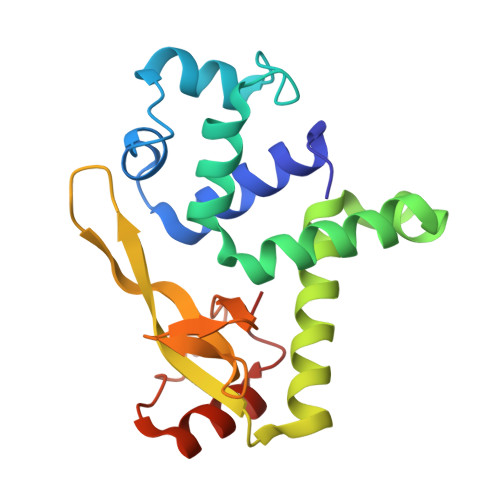Widespread anti-CRISPR proteins in virulent bacteriophages inhibit a range of Cas9 proteins.
Hynes, A.P., Rousseau, G.M., Agudelo, D., Goulet, A., Amigues, B., Loehr, J., Romero, D.A., Fremaux, C., Horvath, P., Doyon, Y., Cambillau, C., Moineau, S.(2018) Nat Commun 9: 2919-2919
- PubMed: 30046034
- DOI: https://doi.org/10.1038/s41467-018-05092-w
- Primary Citation of Related Structures:
6EYX, 6EYY - PubMed Abstract:
CRISPR-Cas systems are bacterial anti-viral systems, and bacterial viruses (bacteriophages, phages) can carry anti-CRISPR (Acr) proteins to evade that immunity. Acrs can also fine-tune the activity of CRISPR-based genome-editing tools. While Acrs are prevalent in phages capable of lying dormant in a CRISPR-carrying host, their orthologs have been observed only infrequently in virulent phages. Here we identify AcrIIA6, an Acr encoded in 33% of virulent Streptococcus thermophilus phage genomes. The X-ray structure of AcrIIA6 displays some features unique to this Acr family. We compare the activity of AcrIIA6 to those of other Acrs, including AcrIIA5 (also from S. thermophilus phages), and characterize their effectiveness against a range of CRISPR-Cas systems. Finally, we demonstrate that both Acr families from S. thermophilus phages inhibit Cas9-mediated genome editing of human cells.
- Département de biochimie, de microbiologie, et de bioinformatique, Faculté des sciences et de génie, Groupe de recherche en écologie buccale, Faculté de médecine dentaire, Université Laval, Québec City, QC, G1V 0A6, Canada.
Organizational Affiliation:
















